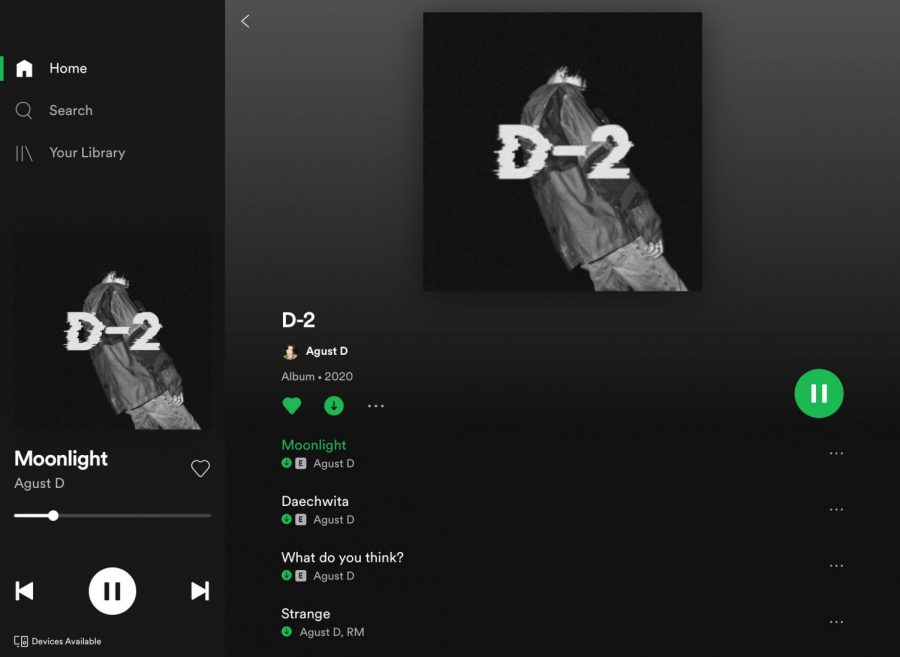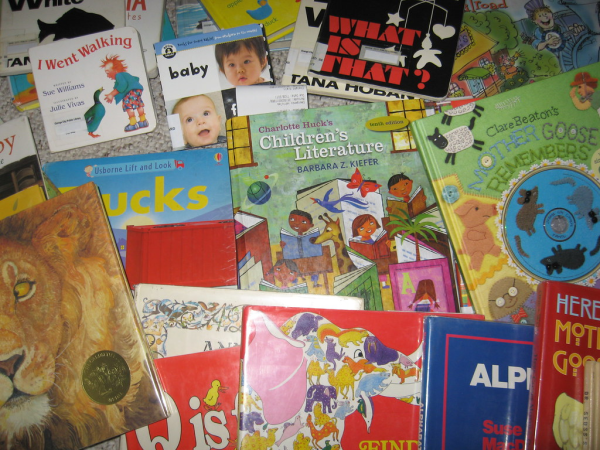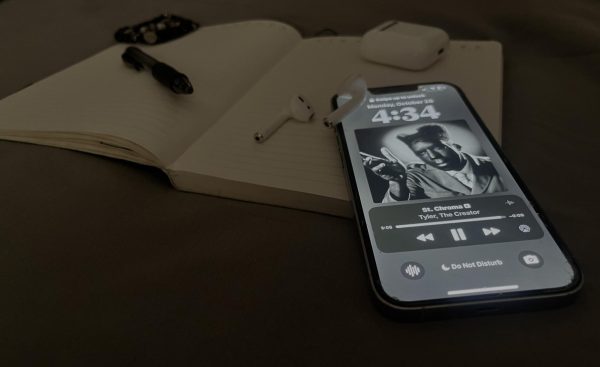August D Saves 2020 with ‘D-2’
On May 16, BigHit Entertainment’s official Twitter account dropped a cryptic picture with “D-7” placed in the middle, signifying a countdown. The blurry picture, resembling a white smudge with a black background, mystified fans.
Although the South Korean company manages more than one idol group now, confusion as to which group the picture was about was cleared when BTS’ official Twitter account retweeted it.
Fans were excited and curious as to what’s subsequent to the picture and were speculating whether an album would be released by either BTS’ Suga, V, or Jungkook. As the days followed, the pictures dropped by @BigHitEnt were becoming clearer but the confusion continued. D-DAY was further approaching and the hype became more visceral.
Although D-DAY was the expected day for the release of their announcement, on D-2, a fan had noticed the change of Suga’s profile picture on Apple Music. Fans broke loose on Twitter in excitement and many stayed up for the release of the album and music video at 6 p.m. KST.
The first track of the album, “Moonlight,” beautifully starts out the mixtape with its raw and captivating lyrics and flow. “Moonlight” is a reflection of time and the growth that follows it, making the listeners ponder about the inevitability of change. With lines such as “It might be our job to handle how things change” and “There are no parallels [in life]/So you’ve got to choose,” Suga challenges what’s terrifying to most people — change.
The title comes from the lyrics “that moonlight is still the same.” Although Suga reflects on how much change he’s encountered throughout life, the moonlight he saw before dawn remained the same. It should be noted that Suga utilizes a line from BTS’ intro song to “The Most Beautiful Moment In Life Pt. 2” where he raps “If you feel like you’re going to crash then accelerate more, you idiot.”
He even begins the track by acknowledging that three years have passed since his release of his first mixtape, August D, and includes “Honestly I don’t know how many songs I’m going to put in.”
A stark change from “Moonlight” flows through the ears of the listeners as Moonlight transitions to Daechwita. The dichotomy of the two sets the mood for what the rest of the album will entail — chaos and rawness. With traditional Korean elements (Daechwita is a genre of traditional military music) implemented into it, “Daechwita” brilliantly highlights the culture of traditional Korean music and rap, making it musically complex. The music video for Daechwita is ingenious and the storytelling, cinematography and set designs beautifully tie it all together.
The song itself is a humble flex of all the success Suga has merited. He expresses how high up he is on the success ladder. Suga raps, “I got everything I wanted, what more’ll make me feel contented/I wanted clothes clothes, then money money, then goal goal now what’s next/Yeah what’s next, here comes my reality check there’s nowhere higher/I only looked up and now I want to look down and put my feet on the ground/I’m a king I’m a boss/Remember my name.”
Suga continues to flex in his third track, “What Do You Think” and while there’s still a feral touch to it, it’s more of an unbothered flex. We’ve all heard the phrase “if the shoe fits” at some point and this song is the epitome of that idea. While Suga flexes his success in “Daechwita,” he points out the lack of need to flex since everything he’s worked for, he’s earned.
“What do You Think” is a slap to the face to the clout chasers who open their hearts up with hatred and greed. While there are celebrities who flash their money as a way to boost their superiority complex, Suga recognizes that “The ten zeros in [his] bank account, that money is the collateral for [his] youth.”
Suga even references “No More Dream,” BTS’ debut song, and raps “I got a big house, big car, big ring”. In the original song, however, he says “I wanna” instead of “I got a”, showing how far his success has gotten.
More chiding follows with D-2’s fourth track “Strange.” Ah yes, economic inequity is strange. The fourth track, “Strange,” featuring his group member RM, is the embodiment of the “eat the rich” phrase that’s used to criticize the detrimental core of capitalism with lyrics such as ”everyone is a slave to this system” rapped by RM.
Suga and RM, members of BTS’ rap line, are never hesitant to criticize flaws embedded into society but that’s not what makes their power duo so special. It’s the way they execute these reproving remarks that makes it even better— Suga criticizes, while RM goes into depth as to why those criticisms exist.
Suga and RM lyrically duel into the game theory where people’s actions can ultimately hurt or benefit them. The lyricism encapsulates capitalism’s collateral damage of stealing dreams in exchange for capital, highlighting the social injustice of social classes. The message is eye-opening, which hopefully influences other artists to partake in making such complex songs with double entendres. The beauty of Suga’s music is that it’s open to interpretation.
We’ve now entered the core of the album with five tracks in. We’ve heard the first part of the album, chaos, and now the rawness of it is starting to creep in more. In the fifth track, Suga embodies the fear of growing older into the song known as “28.” Possibly the perfect choice to put it halfway as the music can calm oneself down.
Having a juxtaposition between the lyrics and music is not foreign to Suga. The mixtape, while fun and exciting, is multiply layered with gut wrenching lyrics. This particular song is calming, but the lyrics can really strike a chord.
After hearing “28,” it’s possible that Suga’s lyricism could have instilled a possible existential crisis within the listeners through the anxieties that accompany the somewhat universal fear of growing.
Although the meaning behind the tracklist order is unknown, Suga should be commended for placing “Burn It” and “People,” songs that contain comforting and healing lyricism, right after “28.” “Burn It” explores power and weakness followed by reassurance and turmoil.
The vigor in Suga’s voice, coordinated by MAX’s vocals, strengthens the message’s core — to set both versions of yourself, past and present, on fire (metaphorically). It’s your decision to either give up your past self, which takes immense courage, and leave it behind as ash or to light yourself up on fire so you can become as bright as blazing fire. However, whichever path you decide to embark on, the end result will be rewarding as it leads you to your truest form.
While the collaboration between Suga and Max Schneider in “Burn It” was thrilling, it was not an ample shock since fans started conspiring a possible collab right after they had posted a picture of their meetup back in January.
The upheaval transition from “Burn It” to “People” really wraps up how chaotic this mixtape is. To go from a suffocating sound to a sound that elicits the feeling of floating away is ingenious.
Suga’s impeccable harmonization with Adora, a producer at BigHit Entertainment, is the perfect touch that helps complete the ambiance of the song. Akin to “Moonlight,” “People” ponders the inevitability of change and having to deal with the discomfort tagged along. There could be a lot of possible takeaways from the lyrics, but it’s agreeable that Suga wants us to live life a little lightly and cease the heavy focus on what we don’t have.
As Suga gives reassurance that we shouldn’t let change take full control of our lives, but instead focus on our own path, he beautifully becomes raw and relatable with the listeners. He points out “Who said man was the animal of wisdom?/ In my opinion, we’re clearly animals of regret” which calls out our tendency to overthink any inconvenience.
So far, this mixtape has made me rethink all of my life decisions.
The oscillation between his vocals and rap make the seventh track even more special since we only ever hear him rapping in BTS. In the chorus, he sings “So what?/ What if it just passes by?/ So what?/ What if I get hurt?/ Sometimes I might get hurt again/ Sometimes I might shed tears upset/ So what?/ What if I live like that?” These lines put our vulnerability on the line and force us to be in touch with our emotions, something many people ignore.
Suga even inputs his work philosophy “What’s good is good” into “People.” Suga leaves it up to people to decide if his work is good enough but will continue to create whatever he desires.
With rawness comes vulnerability and “Hansool” exactly delivers that. In the song, Suga is privy to a side fans often overlook. Using lethargic lyrics and dark instrumentals, the exhaustion of being an artist, depicted by Suga, almost seems tangible. There’s a drowsy feeling embedded into the song, especially since it’s a song that revolves around detoxifying oneself with alcohol after a long day’s work.
Artists tend to shy away from revealing any fatigue or sadness to the public, causing the misinterpretation that they’re always happy. With Suga’s introspective delivery, however, “Hansool” brings light to the emotions artists feel every day and breaks the stigma that forces them to invariably be robotically happy. Despite some artists having thousands of fans, loneliness is still a haunting facet that follows them around.
The amazing production of this track is amazing as it makes you feel like you’re in space while Suga lets you in on his thoughts.
“Set me free,” the ninth track of the album, is an escape from an obtrusive, anxious mindset. Similar to the feeling of “People,” “Set me free” makes one feel like they’re floating — only this time it’s not floating away from something but much rather to a euphoric state. The vocals and instrumentals succeed in making it a blissful interlude.
“Dear my friend,” featuring Kim Jong Wan of NELL, is the perfect storm to end the mixtape. The storytelling is raw, heartbreaking and emotional. Whether one listens to D-2 on their phone or computer, in bed or while doing a task, the deep emotion felt from Suga’s hard hitting lyrics immediately travels to us.
Suga starts out the mixtape by expressing how one cannot cease the undergoing of change but ends it with mourning the consequences change brought to a past friendship.
The profound pain is inexplicable and it must have taken Suga a lot of courage to tell his part of the story of losing a friend. Although it’s implied that Suga’s friend went to jail, the exact reason for their fallout wasn’t that but rather the monster that was brought out by this change.
He visited him every week, along with the trial and the release but as time passed, they became indistinguishable to each other. Still, Suga misses them despite the bittersweet hatred he holds over him which is conveyed meticulously with both the lyricism and the piano at the beginning along with the blend of soft piano, bass and electric guitar at the end. The instrumentals are so powerful that there isn’t even a need for any translation for the message to resonate with the listeners.
Suga perfectly captured the heavy pain of loathing someone who made you enraptured with the past memories created. Despite missing his friend, Suga calls him a monster which gives us an idea of how deep the wound is. For the first part of the track, Suga is reminiscent and fond of him. However, the lyrics segues into nostalgic anger, disbelief and betrayal as they became different people and understood the pain of change.
The duality of Suga is insane — from chastising people for their cowardness to rawly speaking up about growth and loss, he has managed to fit all facets of his mind into a 32 minute, 33 seconds album.
Suga’s approach with self-growth in D-2 is admirable. Although BTS has invariably been transparent with their journey of self-love and growth, Suga expresses it in a more figuratively violent way. However, despite conveying self-growth through a different approach, he gives it a special touch by referencing some of his lyrics in BTS songs, such as “Spring Day” and “Tear,” throughout the album.
Within all ten tracks of his second mixtape, Suga allows us to enter and see a vulnerable piece within his mind and lets us interpret it in whichever way we want. In other words, “what’s good is good.”
Although the album was supposed to drop at the end of last year, the impromptu drop of D-2 gave BTS ARMYs something to look forward to during these turbulent times.

Hobbies/interests: Reading webtoons, watching dramas, eating ice cream
Fav artist: BTS
Movie you never get tired of watching: Selena
Goal for...













